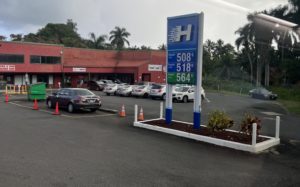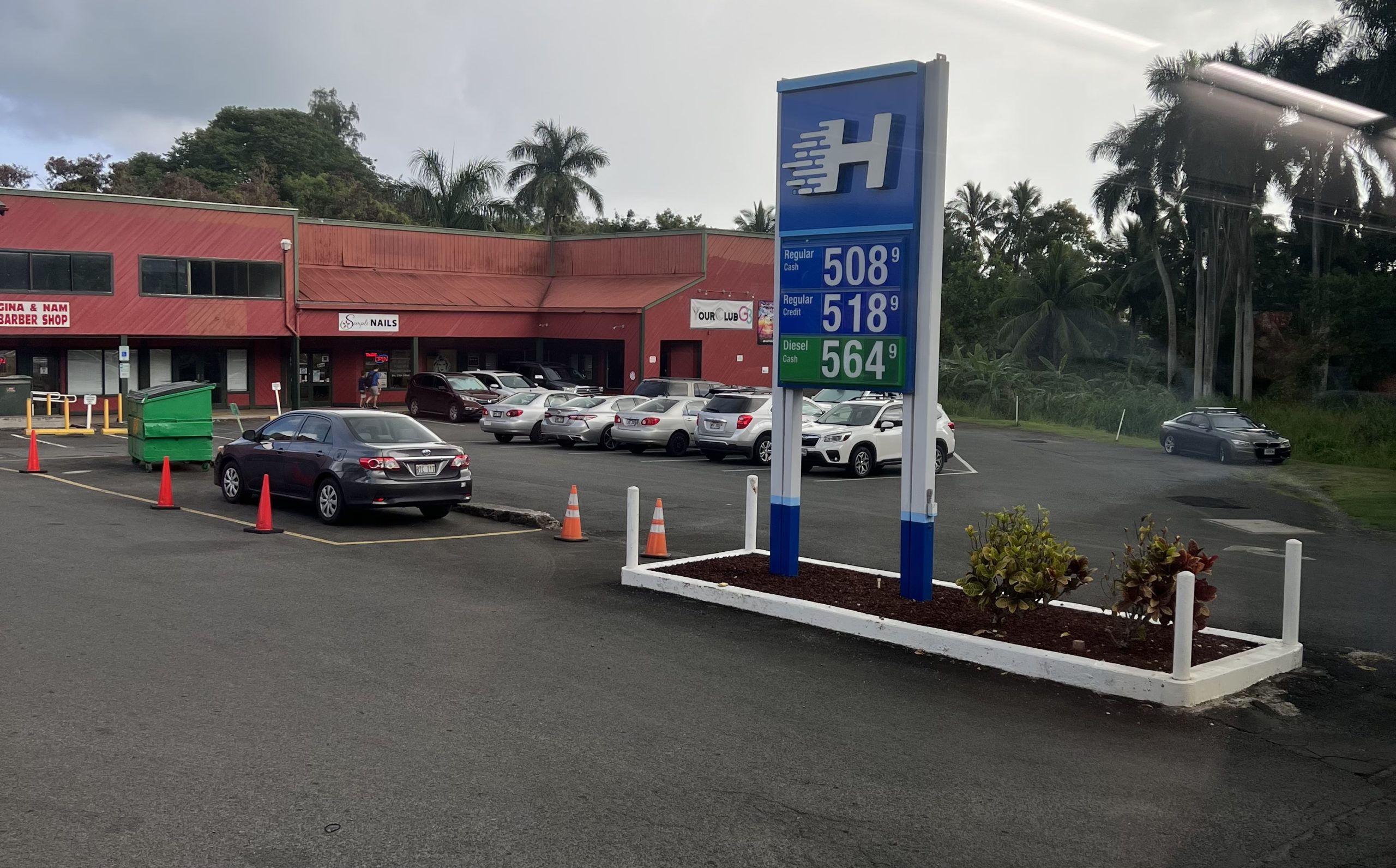Recently, I enjoyed a week-long vacation in Hawaii. One of the highlights of my trip was a circle island tour across Oahu.
When driving through Waimanalo on our way to the Pali Lookout, I noticed a gas station selling regular unleaded for $5.08 per gallon. In fact, Hawaii’s price was nearly 80  cents cheaper than California’s $5.81 average as of April 7.
cents cheaper than California’s $5.81 average as of April 7.
Despite the current spike in gas prices due to the Russian invasion of Ukraine and poor energy policy decisions by the Biden Administration, gas prices are traditionally higher in Hawaii than the mainland.
Like in California, Hawaii imposes an expensive mix of government taxes on the per gallon price of gasoline. As of January, Hawaii drivers paid 51.7 cents per gallon in state gas taxes, which is the fourth highest in the nation. California, by comparison, has the country’s most expensive state gas tax burden.
Another primary reason gas prices are higher is because of an antiquated law from the early 1920’s – the Jones Act. Passed in the aftermath of World War I, the Jones Act “requires all goods shipped between U.S. ports to be transported by U.S. vessels.”
While this was not a burdensome requirement 100 years ago, the U.S. doesn’t build many ships anymore. As a result, it’s incredibly difficult for states like Hawaii to find U.S. built, U.S. operated ships to transfer oil and supplies from the U.S. mainland. According to Fox Business, there are only 96 Jones Act-qualified vessels in the country today.
In practice, the Jones Act makes it much more expensive to ship oil and other goods from California and other mainland ports to Hawaii and other U.S. territories on Jones Act-approved shipping vessels versus those flying an international flag – increasing prices for consumers who live there.
Back in 2017, in the aftermath of Hurricane Maria, the late Sen. John McCain (joined by Utah Sen. Mike Lee) introduced legislation to fully repeal the Jones Act, calling it an “antiquated, protectionist law that has driven up costs”, but the law remains in place today. The law complicated efforts to bring supplies to Puerto Rico in the aftermath of Hurricane Maria before President Trump granted a temporary waiver.
Unlike in California, Democrats and Republicans are working together to try and do something meaningful about the Aloha State’s gas price crisis.
PRI’s sister free-market think tank in Hawaii, the Grassroot Institute, is leading an effort to convince the Biden Administration to grant a one-year exemption from the Jones Act for fuel imports.
In a letter to President Biden, Grassroot Institute president Keli’i Akina writes that “because of the Jones Act, it is too expensive to import oil from U.S. sources. Thus, Hawaii is almost wholly dependent on foreign sources for its oil imports, including a quarter to a third from Russia, which has made the islands especially vulnerable among U.S. states to fallout from the crisis in Ukraine.”
In a 2019 episode of PRI’s Next Round podcast, Akina told us that the Jones Act, “the bottom line is that it raises costs of living, costs which are not necessary. We could solve this problem if we simply allowed our shippers to do what the U.S. military does, which is to buy many of our ships from our allies.”
Grassroot has been joined in their effort by Democrat U.S. Rep. Ed Case, who argues that, “through a combination of factors unique to Hawai‘i, absent action the people of Hawai‘i will be asked to bear a far greater burden of any Russian oil ban than anywhere else in the country.”
It’s refreshing to see leaders in Hawaii from across the political spectrum join together to push for policy changes that would benefit all residents and alleviate a real energy crisis that is looming. California leaders who are pointing the finger at one another and lobbing partisan charges over the Golden State’s high gas prices would be wise to learn from their example and join together to bring long-overdue relief.
Tim Anaya is the Pacific Research Institute’s senior director of communications and the Sacramento office.

